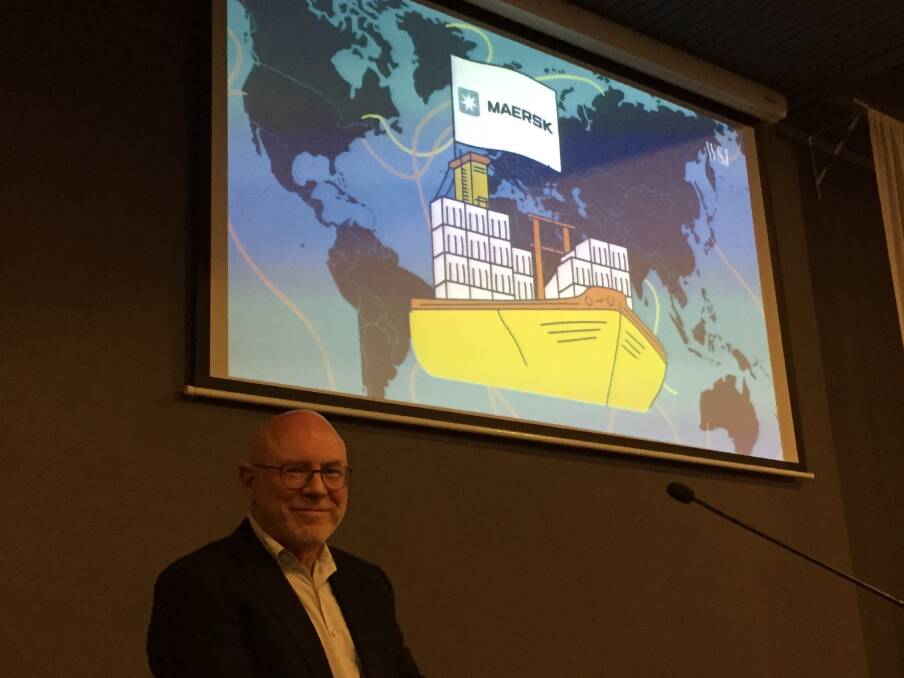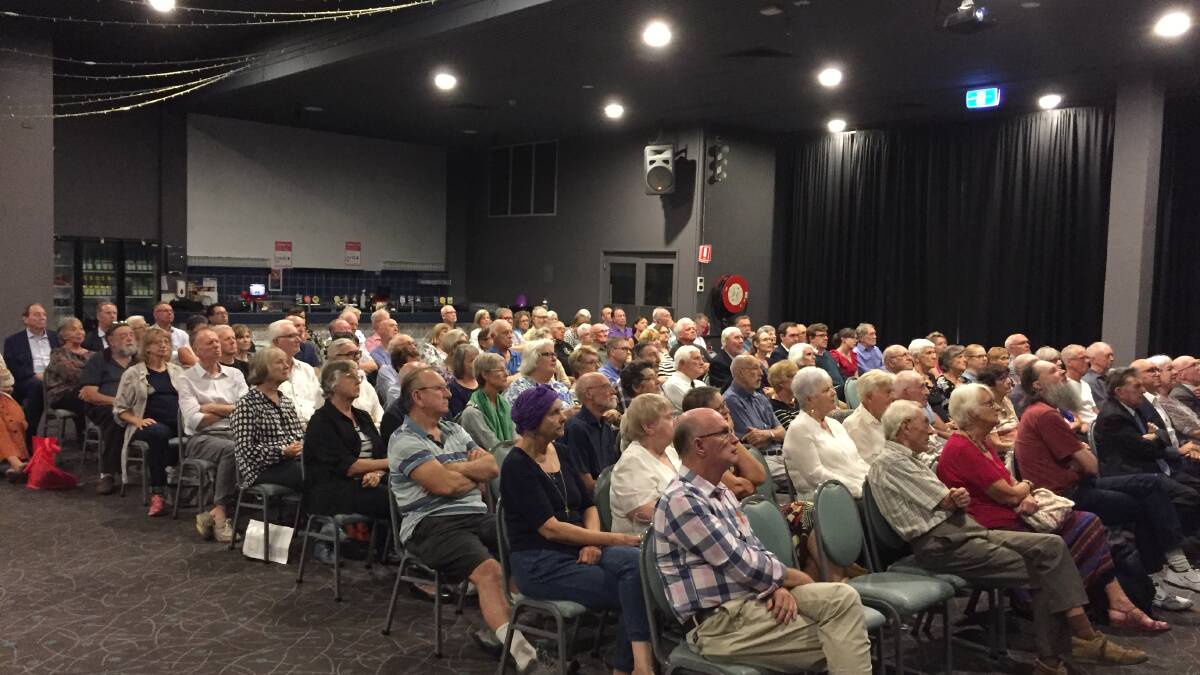
A NEWCASTLE container terminal could be operational by 2022 if all of its present problems were solved overnight, Port of Newcastle Investments chairman Roy Green told a Newcastle Institute forum on Wednesday night.
Subscribe now for unlimited access.
$0/
(min cost $0)
or signup to continue reading
Referring to the contractual fee paid to Botany once Newcastle shifted more than 30,000 containers a year, Professor Green said an Australian Competition and Consumer Commission finding that the fee was anti-competitive would open the way for a potential “negotiated outcome” between the two ports, with or without the state government’s involvement.
Although the ports are privatised the state still controls navigation and port security through the Port Authority of NSW. Its chief executive, Grant Gilfillan, said from the floor that he was impressed with the Newcastle proposal, and would tell Roads, Maritime and Freight Minister Melinda Pavey of the “enthusiasm” in Newcastle for the project.
More than 120 people gathered at Souths Newcastle to hear Professor Green’s presentation.

Professor Green, who took up the chairman’s role in December, took the audience through the long history of the terminal, first proposed by BHP as a replacement use for the still-vacant steelworks site.
He said Sydney had a problem and Newcastle had a solution.
Botany handled 2.4 million containers last year and with most of those containers leaving the port on trucks, they add heavily to Sydney’s road congestion.
Projections show container traffic doubling by 2030, with Sydney’s road tolls adding heavily to container transport costs.
Newcastle on the other hand was only using 50 per cent of its shipping capacity and had the room to handle 2 million containers a year, easing Sydney’s congestion by having the containers rail-hauled to an inland terminal at Eastern Creek, west of Sydney, with the goods destined for Sydney unloaded there.
Professor Green said that in this way, a Newcastle container terminal became a political solution to a major Sydney problem in the form of road congestion from trucks and rail congestion from the co-mingling of passenger and freight rail.
Asked why Port of Newcastle Investments accepted a privatisation contract that included the Newcastle “handcuffs”, Professor Green said he wasn’t there and so didn’t know.
But he said the was now hoping it could change the government’s mind on the fee, and was putting forward its economic and social arguments for a Newcastle terminal.
Asked whether Port of Newcastle was interested in taking independent legal action to test the legality of the fee, Professor Green said it wasn’t, but the involvement of the ACCC in looking at the legality of the fee raised the possibility of “discussion” between the parties that could lead to a “negotiated outcome”, which would be “better than a win/lose situation”.
After his presentation, Professor Green told the Newcastle Herald that the 2022 figure was a theoretically possible date and it was likely to take longer to achieve.


